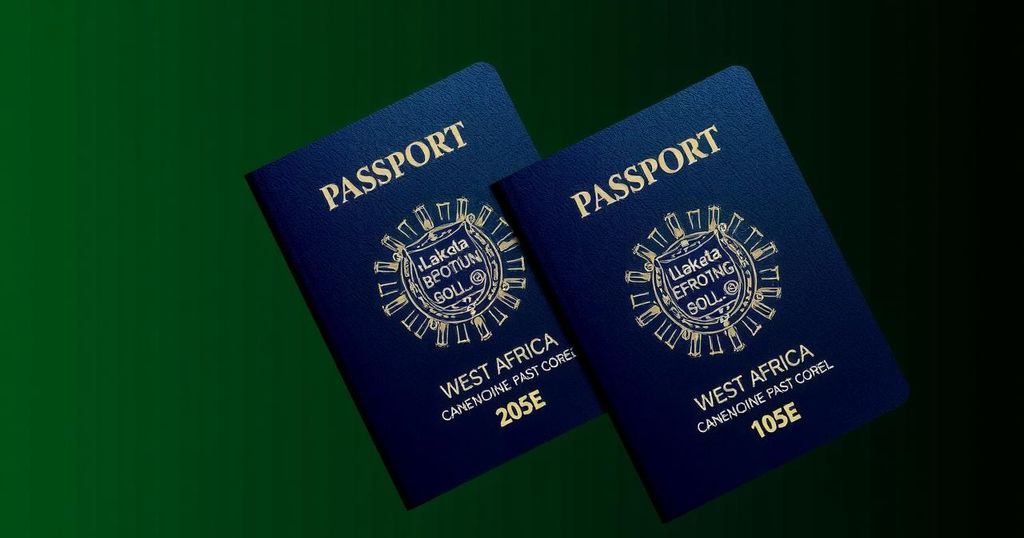Introduction of Biometric Passports by Mali, Niger, and Burkina Faso Following ECOWAS Departure
Summary
Mali, Niger, and Burkina Faso are set to roll out new biometric passports as they withdraw from ECOWAS. This initiative, announced by Mali’s Colonel Assimi Goïta, aims to standardize travel documents among the newly formed Alliance of Sahel States, amidst tensions following military governance and sanctions from other West African nations.
Three West African nations, namely Mali, Niger, and Burkina Faso, are set to introduce a new biometric passport system as they withdraw from the Economic Community of West African States (ECOWAS). In a recent televised address, Colonel Assimi Goïta, the leader of Mali, announced that these countries would be launching a new biometric passport for the newly established Alliance of Sahel States (AES). The purpose of this initiative is to harmonize travel documentation within their shared region. The three nations are currently under military junta rule, having experienced coups between 2020 and 2023. Earlier this year, they collectively declared their intention to exit ECOWAS, citing an overreliance on the influence of former colonial powers as a driving reason. Their decision to leave follows sanctions imposed by other West African countries aimed at compelling the juntas to restore civilian governance. Despite these pressures, Mali, Niger, and Burkina Faso have opted to strengthen their ties and collaborate within the AES framework instead. In response to the withdrawal, ECOWAS officials have urged the trio of nations to reconsider their departure, warning that such a move could significantly undermine regional integration efforts and the rights of free movement among citizens, which is crucial for the economic activities of the bloc’s 400 million residents. Oumar Touray, the ECOWAS Commission President, expressed his apprehensions about the implications of this decision for the region’s established norms of cooperation and commerce.
The introduction of biometric passports by Mali, Niger, and Burkina Faso is a notable political development that emerges amid a backdrop of significant tension within the West African region. After experiencing a series of military coups, these countries are distancing themselves from ECOWAS, an organization that aims to promote economic integration and stability among its member states. Their collective withdrawal stems from long-standing grievances regarding the influence of Western powers on the regional bloc’s operations, a sentiment that has united these military-led governments in their quest for autonomy and solidarity. The creation of the AES symbolizes a concerted effort to forge closer cooperation among themselves, although this raises questions about the future of regional integration, free movement, and economic collaboration across West Africa.
In conclusion, the planned introduction of biometric passports by Mali, Niger, and Burkina Faso marks a significant shift in West Africa’s political landscape, as these nations withdraw from ECOWAS to form a new alliance. This initiative aims to standardize travel documentation while illustrating a move towards greater regional self-reliance amidst external pressures. However, this decision raises concerns regarding potential ramifications for regional stability and free movement within West Africa, prompting calls from ECOWAS for reconsideration of this course of action.
Original Source: www.bellanaija.com








Post Comment